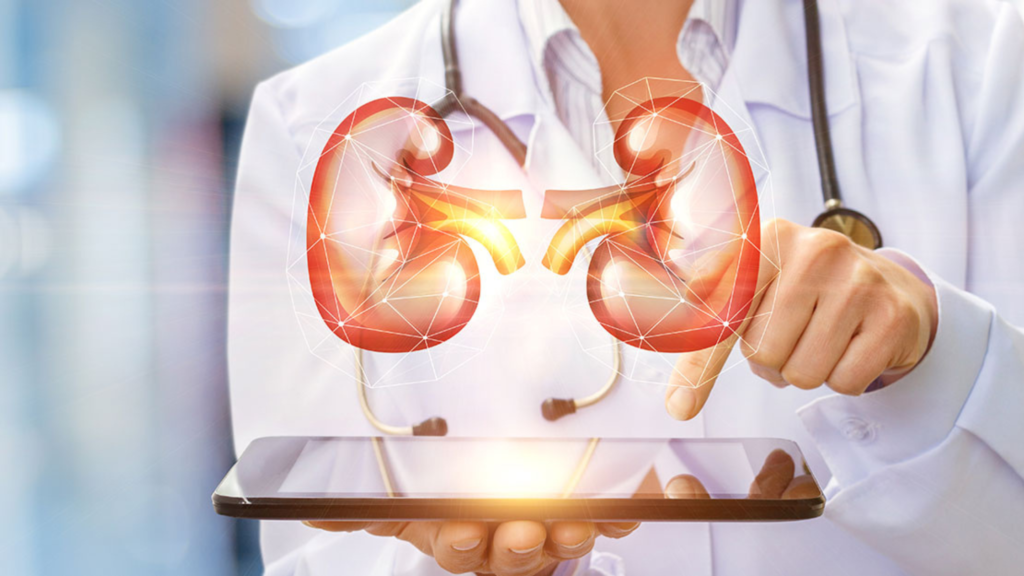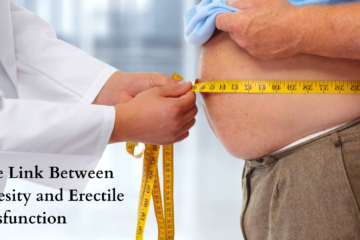
Embarking on the journey of life post-kidney transplant is a remarkable experience, symbolizing not just a medical procedure but the promise of a renewed and healthier existence. As you step into this new chapter, self-care becomes the cornerstone of ensuring a smooth recovery and embracing the opportunities that lie ahead. This blog is your comprehensive guide to navigating the post-transplant landscape with intentionality and empowerment. From managing medications to nurturing your emotional well-being, we will explore the key aspects of self-care that will not only safeguard your new kidney but also enrich your overall quality of life. So, let’s delve into the art of nurturing yourself after a kidney transplant, unlocking the potential for a vibrant and fulfilling future.
- Physical Well-being
Physical well-being after a kidney transplant is a critical aspect of the post-transplant journey. The transplant surgery itself is a significant step toward improved health, but maintaining and enhancing your physical well-being requires consistent attention to various factors. In this section, we will delve into key aspects of physical well-being after a kidney transplant:
Medication Management
One of the cornerstones of post-transplant care is the proper management of medications, particularly immunosuppressants. These medications are vital to prevent the body from rejecting the transplanted kidney. Follow your healthcare team’s prescribed medication regimen meticulously. Establish a daily medication routine, and use tools like pill organisers or smartphone reminders to ensure consistency. It’s crucial to communicate openly with your healthcare team about any side effects or concerns regarding your medications.
Regular Medical Check-ups
Frequent follow-up appointments with your transplant team are essential for monitoring your overall health and the functioning of your transplanted kidney. Attend these appointments as scheduled, and actively engage with your healthcare providers. Regular blood tests will be conducted to assess kidney function, medication levels, and potential complications. These check-ups are crucial for early detection and intervention, contributing to the long-term success of your transplant.
Physical Activity
Gradual reintegration of physical activity into your routine is encouraged post-transplant. Consult with your healthcare team to develop a personalized exercise plan based on your overall health and any pre-existing conditions. Regular exercise can improve cardiovascular health, strengthen muscles, and enhance well-being. Start with low-impact activities like walking and gradually increase intensity as your body adjusts. Exercise not only promotes physical health but also contributes to mental and emotional well-being.
Diet and Nutrition
Maintaining a healthy and kidney-friendly diet is paramount after a transplant. Follow the dietary recommendations provided by your healthcare team, which may include restrictions on sodium, potassium, and phosphorus intake. Stay well-hydrated, as proper fluid balance is crucial for kidney function. Consider consulting with a registered dietitian to create a personalized nutrition plan that aligns with your specific needs and preferences.
Infection Prevention
Immunosuppressant medications make you more susceptible to infections, so practising good hygiene is crucial. Wash your hands regularly, avoid crowded places, and be cautious about exposure to potential infections. During flu season, consider wearing a mask and getting vaccinated as recommended by your healthcare team. Promptly report any signs of infection, such as fever or persistent cough, to your medical providers.
Rest and Recovery
Adequate rest is fundamental to the healing process. Listen to your body and prioritize sufficient sleep. Pay attention to fatigue and avoid overexertion, especially in the early stages of recovery. Incorporate relaxation techniques into your routine, such as deep breathing or meditation, to manage stress and promote overall well-being.
- Emotional Well-being
Emotional well-being is a vital aspect of the post-kidney transplant journey, often influencing the overall success of the transplant and the quality of life. Navigating the emotional landscape after such a significant medical event requires attention to various factors. Here’s a detailed exploration of fostering emotional well-being after a kidney transplant:
Support Systems
Family and Friends: Cultivate a strong support network with family and friends who understand and empathize with your journey. Share your experiences, fears, and triumphs, creating an open line of communication that fosters understanding.
Transplant Support Groups: Joining a transplant support group provides a unique opportunity to connect with individuals who have undergone similar experiences. Sharing stories and insights can offer a sense of community and validation.
Open Communication: Communicate openly with your loved ones about your emotional state. Transparency can help them better understand your needs and provide effective support.
Stress Management
Relaxation Techniques: Incorporate relaxation techniques into your daily routine, such as deep breathing exercises, meditation, or mindfulness. These practices can help manage stress and anxiety, promoting a sense of calm and balance.
Identify Stress Triggers: Reflect on factors that contribute to stress in your life. Identify specific triggers and work on strategies to minimize or cope with them effectively.
Balancing Activities: Strike a balance between rest and activity. Overexertion can contribute to stress, so it’s essential to prioritize self-care and downtime.
Mental Health Awareness
Monitoring Emotional Health: Pay attention to your emotional well-being and be aware of signs of anxiety or depression. If you experience persistent feelings of sadness, anxiety, or emotional distress, seek professional help.
Professional Counseling: Consider engaging with a mental health professional, such as a psychologist or counsellor, who specializes in post-transplant emotional support. Professional guidance can provide coping strategies and a safe space to discuss concerns.
Support for Caregivers: Acknowledge the emotional impact on caregivers as well. Encourage open communication and consider family counselling to address shared concerns.
Joyful Activities
Engage in Hobbies: Dedicate time to activities that bring you joy and fulfilment, whether it’s reading, painting, gardening, or any hobby you enjoy. Hobbies can serve as a therapeutic outlet and contribute positively to your emotional well-being.
Celebrate Milestones: Acknowledge and celebrate milestones in your recovery. Whether big or small, each achievement contributes to a sense of accomplishment and positivity.
- Lifestyle Adjustments
Lifestyle adjustments after a kidney transplant are crucial for maintaining the health and longevity of the transplanted organ. These adjustments encompass a range of habits, from dietary considerations to infection prevention measures. Here’s a detailed exploration of key lifestyle adjustments after a kidney transplant:
Diet and Nutrition
Kidney-Friendly Diet: Follow a kidney-friendly diet as recommended by your healthcare team. This typically involves controlling sodium, potassium, and phosphorus intake. Work with a registered dietitian to create a personalized nutrition plan tailored to your specific needs and preferences.
Hydration: Stay well-hydrated, as proper fluid balance is essential for kidney function. Monitor your fluid intake, especially if you have any specific restrictions or recommendations from your healthcare team.
Limiting Alcohol and Caffeine: Limit alcohol intake as it can interact with medications and strain the kidneys. Moderation in caffeine consumption is advised, as excessive caffeine can contribute to dehydration.
Infection Prevention
Good Hygiene Practices: Practice good hygiene, including regular handwashing, to reduce the risk of infections. Use hand sanitiser when soap and water are not available, especially in crowded or public places.
Avoiding Crowds and Sick Individuals: Minimize exposure to crowded places, especially during flu season. If someone in your household or close contact is sick, take precautions to limit your exposure.
Vaccinations: Stay up-to-date with vaccinations, including the flu vaccine. However, discuss vaccination plans with your healthcare team to ensure they align with your specific situation and medications.
Substance Use
Smoking Cessation: Quit smoking if you are a smoker. Smoking can negatively impact kidney function and overall health. Seek support from smoking cessation programs if needed.
Medication Awareness: Be cautious with over-the-counter medications and herbal supplements, as some may interact with your immunosuppressant medications. Always consult your healthcare team before taking any new medications or supplements.
Regular Exercise
Gradual Reintegration: Gradually reintroduce physical activity into your routine, starting with low-impact exercises. Consult with your healthcare team to develop a personalized exercise plan that considers your overall health and any specific limitations.
Cardiovascular Health: Focus on activities that promote cardiovascular health, such as walking, swimming, or cycling. Regular exercise can contribute to overall well-being and aid in weight management.
Stress Management
Mindfulness and Relaxation: Practice mindfulness and relaxation techniques to manage stress. Activities like yoga, meditation, or deep breathing exercises can be beneficial.
Balancing Work and Rest: Strike a balance between work, rest, and recreational activities. Avoid excessive stress and overexertion, as these factors can impact your overall health.
Regular Medical Follow-ups
Adherence to Appointments: Attend all follow-up appointments as scheduled by your healthcare team. Regular medical check-ups are crucial for monitoring your overall health, kidney function, and medication levels.
Open Communication: Communicate openly with your healthcare team about any concerns or changes in your health. Timely reporting of symptoms or side effects is essential for prompt intervention.
Conclusion
Embarking on the journey of self-care after a kidney transplant is an empowering and transformative experience. As you navigate the intricate balance of physical health, emotional well-being, and lifestyle adjustments, remember that your commitment to these aspects is not just a routine but a celebration of life’s renewed possibilities.
Each facet contributes to the intricate tapestry of your well-being, ensuring that your new lease on life is not only sustained but flourishes. As you embrace this chapter of recovery, remember that you are not alone. Your healthcare team, support network, and the wealth of resources available are here to guide and uplift you. Self-care is a dynamic and evolving process, and it’s perfectly okay to seek help and adapt as needed.
May your post-transplant journey be filled with strength, resilience, and moments of profound joy. Cherish each day, savour the victories, and know that your commitment to self-care is the compass guiding you toward a future of vibrant health and fulfilment. Here’s to your well-being, your journey, and the promising horizons that await.
Dr. Sumit Sharma is an experienced urologist, andrologist, and kidney transplant surgeon with over 20 years of clinical experience. He is the founder of the Department of Urology at multiple hospitals in Gurgaon and has established successful kidney transplant programs across the city.
With a commitment to the highest standards, Dr. Sumit Sharma ensures personalised, professional treatment, making your well-being the primary focus. Choose Dr. Sumit Sharma for outstanding Urological care in Gurgaon.



